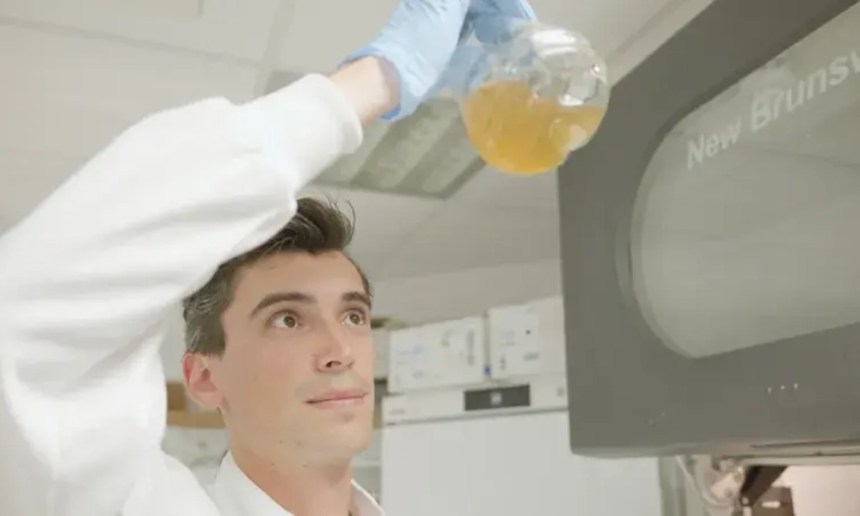
University of Edinburgh publishes new study on how a common microbe can turn plastic waste into paracetamol.
A team of scientists from the University of Edinburgh’s Wallace Lab have genetically reprogrammed the bacterium E. coli to transform a molecule derived from PET plastic, known as terephthalic acid, into the active ingredient of paracetamol.
PET (polyethylene terephthalate) plastic is a strong, lightweight material used for water bottles and food packaging.
Researchers used a fermentation process, similar to the one used in brewing beer, to accelerate the conversion from industrial PET waste into paracetamol in less than 24 hours.
The new technique was carried out at room temperature, created virtually no carbon emissions, and is more sustainable than the current production of paracetamol, researchers say.
This work demonstrates that PET plastic isn’t just waste or a material destined to become more plastic…
Professor Stephen Wallace, UKRI Future Leaders Fellow and Chair of Chemical Biotechnology, commented: “This work demonstrates that PET plastic isn’t just waste or a material destined to become more plastic – it can be transformed by microorganisms into valuable new products, including those with potential for treating disease.”
Paracetamol is traditionally made using the derivatives of fossil fuels.
Experts say the new approach demonstrates how traditional chemistry can work with engineering biology to create living microbial factories capable of producing sustainable chemicals while also reducing waste and greenhouse gas emissions.
The research, published in Nature Chemistry, was funded by an EPSRC CASE award and biopharmaceutical company AstraZeneca, supported by Edinburgh Innovations (EI), the University’s commercialisation service.
Ian Hatch, Head of Consultancy at EI, said: “We are bringing in exceptional companies like AstraZeneca to work with Stephen and others at the University to translate these cutting-edge discoveries into world-changing innovations.
“Engineering biology offers immense potential to disrupt our reliance on fossil fuels, build a circular economy and create sustainable chemicals and materials, and we would invite potential collaborators to get in touch.”
The post Microbe can turn plastic waste into paracetamol, study shows appeared first on Circular Online.
